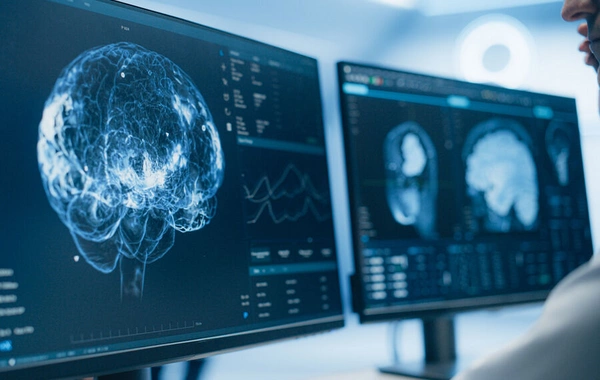Alzheimer's disease
Alzheimer's disease
Alzheimer’s disease is the most common form of dementia, affecting millions worldwide. This progressive neurodegenerative condition leads to memory loss, cognitive decline, and impaired ability to perform daily tasks. In 2025, research into Alzheimer’s continues to advance, offering new diagnostic tools and treatment options.
What is Alzheimer’s Disease?
Alzheimer’s disease is a chronic brain disorder named after German psychiatrist Alois Alzheimer, who first described it in 1907. It is characterized by the accumulation of beta-amyloid plaques and neurofibrillary tangles in the brain, leading to neuronal death and cognitive impairment. The disease typically affects individuals over 65, though early-onset forms can occur earlier. In 2025, approximately 50 million people globally live with Alzheimer’s, and this number is growing.
Causes of Alzheimer’s Disease
The exact causes of Alzheimer’s remain partially understood, but several key factors are identified:
-
Genetic Predisposition: The ApoE4 allele increases risk, particularly in women, while mutations in APP, PSEN1, and PSEN2 genes are linked to hereditary forms.
-
Age: The primary risk factor is being over 65, though early-onset cases account for 5–10% of patients.
-
Lifestyle Factors: Lack of physical activity, smoking, diabetes, hypertension, and high cholesterol elevate risk.
-
Hormonal Changes: In women, reduced estrogen levels post-menopause may contribute.
-
Trauma and Infections: Head injuries and certain infections may promote neurodegeneration.
Symptoms of Alzheimer’s Disease
The disease progresses through stages:
-
Early Stage (Pre-dementia): Mild memory issues, difficulty concentrating, forgetting recent events.
-
Early Dementia: Worsening memory, speech difficulties, spatial disorientation, reduced vocabulary.
-
Moderate Dementia: Loss of reading and writing skills, trouble recognizing loved ones, irritability, or apathy.
-
Severe Dementia: Complete dependence on others, loss of speech, inability to move independently.
Psychiatric symptoms include anxiety, depression, aggression, and sleep disturbances. Women are more likely to develop symptoms due to their longer life expectancy.
Diagnosis of Alzheimer’s Disease
Diagnosis is comprehensive, as definitive confirmation is only possible through post-mortem brain examination. Key methods include:
-
Medical History and Interview: Physicians gather symptom information from patients and family.
-
Cognitive Tests: Tools like the Mini-Mental State Examination (MMSE) assess memory and thinking.
-
Laboratory Tests: Blood tests check vitamin B12, thyroid hormone, and homocysteine levels to rule out other dementia causes.
-
Neuroimaging: MRI or CT scans detect hippocampal and temporal lobe atrophy; PET scans reveal beta-amyloid buildup.
-
Cerebrospinal Fluid Analysis: Measures beta-amyloid and tau protein levels indicative of Alzheimer’s.
In 2025, a plasma test by Fujirebio Diagnostics, approved in the US, detects amyloid plaques in individuals over 55, marking a significant diagnostic advancement.
Treatment of Alzheimer’s Disease
No cure exists, but treatments slow progression and improve quality of life. Approaches include:
-
Medications: Cholinesterase inhibitors (donepezil, rivastigmine) and memantine enhance cognitive function and behavior. Anti-amyloid antibodies (lecanemab, donanemab) are used in early stages, though their efficacy and safety are still under study.
-
Psychosocial Interventions: Cognitive training, behavioral therapy, and stimulation programs (e.g., “Cognitive Exercise for Alzheimer’s”) support brain function.
-
Care and Support: Quality caregiving, physical activity, and social engagement prolong patient activity.
Prevention and Research in 2025
While Alzheimer’s cannot be fully prevented, a healthy lifestyle reduces risk:
-
Following a Mediterranean diet (fish, nuts, olive oil).
-
Engaging in regular physical and mental activities (reading, chess).
-
Managing blood pressure, blood sugar, and cholesterol.
-
Avoiding smoking and moderating alcohol consumption.
In 2025, research focuses on biomarkers and personalized therapies. Clinical trials explore drugs targeting tau proteins and neuroinflammation, alongside methods like transcranial magnetic stimulation to enhance neuronal activity.
Conclusion
Alzheimer’s disease remains a significant medical challenge, but early diagnosis and comprehensive treatment can slow its progression. In 2025, innovations like plasma tests and anti-amyloid therapies offer hope for better patient outcomes. Support from loved ones, a healthy lifestyle, and timely consultation with a neurologist are critical in managing this condition.


















